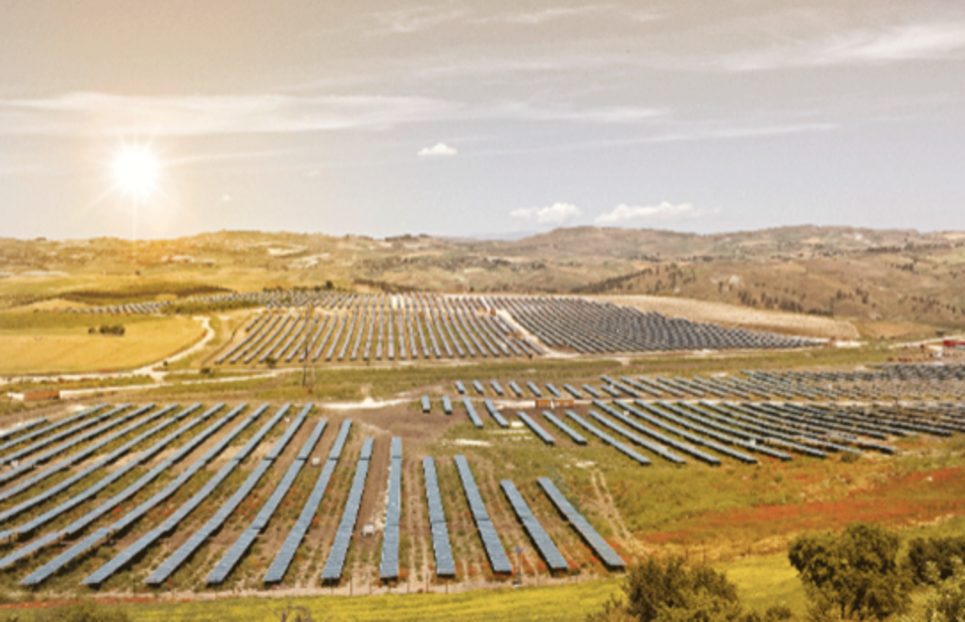
Looking for a good idea in renewables? Portfolio manager Varun Anand says there are good options in the solar energy field, but unfortunately, Canadian Solar (Canadian Solar Stock Quote, Charts, News, Analysis, Financials NASDAQ:CSIQ) has some industry-wide headwinds to deal with.
“This is a manufacturer and producer of solar panels and they’ve done a great job of building out what I would consider some of the best in class solar panels available in the market, very high capacity factors, but the issue really is that you do have a lot of competition from China,” said Anand, vice president at Starlight Capital, who spoke on BNN Bloomberg on Thursday.
Founded in 2001, Guelph, Ontario-based Canadian Solar is a vertically integrated company making photovoltaic modules and battery storage solutions and, about a decade ago, they added large-scale power project development to its repertoire. The company has business in 20 countries involving 800 MWp (megawatts at peak) of projects currently in operation, 5.3 GWp (gigawatts at peak) in projects either under construction or in backlog and 18.5 GWp in the pipeline.
Along with the rest of the renewables space, Canadian Solar saw its share price rise sharply in the months and years leading up to early 2021 as interest in the space came to a boil with the election of President Joe Biden’s Democrats in the United States, promising a ton of cash for renewable infrastructure build, and a general sense that governments worldwide were starting to put serious weight behind their climate change pledges.
The peak came in February of last year, however, and all across the sector stocks started dropping like rocks, including CSIQ, which had gone from around $20 per share at the start of 2020 to as high as $64 by January, 2021. Since then the stock has bounced its way down to the $30 range where it’s mostly been for 2022 so far.
Renewables have always had dramatic ups and downs as advances in technology and government programs play a big part in how an industry like solar will fare. And the latest from the Biden Administration is a clear example.
Earlier this week, Biden ordered emergency measures in the form of the Defense Production Act to give tariff exemptions on solar panels coming from Southeast Asia. The move was in response to concerns from the American solar industry over an ongoing Commerce Department investigation into potential trade violations on the part of Chinese companies which have been alleged to have moved operations into neighbouring countries.
The lifting of tariffs was aimed at allowing the American solar installation industry to proceed at cutting into the great demand for solar, but criticism has come from US-based solar producers who say the move undercuts their ability to compete.
The new development will weigh on a company like Canadian Solar, says Anand, who prefers taking part in the solar space via the pure developers that build and run renewable energy facilities.
“The Department of Justice opened up an investigation against Chinese manufacturers [to see] if they were bypassing tariffs by going through other countries and that really weighed on the solar industry,” Anand said. “But then just a couple days ago the Biden administration announced that they’re going to have basically a hiatus on tariffs for two years for panels from Vietnam, Cambodia, Malaysia and Indonesia.”
“With that in the back of your mind, I think Canadian Solar is going to face more stiff competition,” Anand said. “I’d rather just invest in the developers — I’d rather invest in a Boralex or a Northland Power or Atlantica Yield because they’ll benefit from the price competition in the industry and the removal of tariffs, whereas with Canadian Solar it’s actually going to be to the detriment of their business. That’s how I would play it.”
Last month, Canadian Solar released its first quarter 2022 financials, which featured net revenue of $93.0 million compared to $471 million a year earlier.
“First quarter 2022 shipments, revenue and gross margin all came in as expected, despite the challenging operating environment,” said CEO and Chairman Shawn Qu in a press release.




 Share
Share Tweet
Tweet Share
Share




Comment